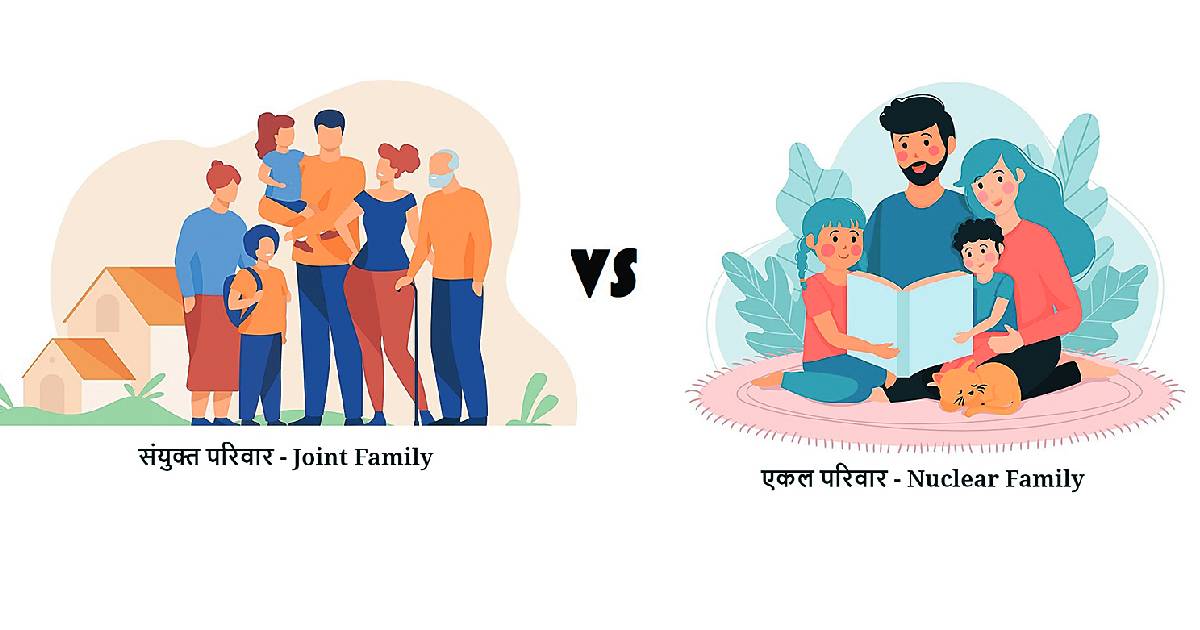Latest News
The disintegration of Joint Families - SOCIO-ECONOMIC FALLOUTS

The joint family system is said to be first associated with the settling down of the Aryans in different parts of the World and similar institutions were practically all over the World. When the pastoral stage was over and the people began to live a settled life by tilling the soil, constructing the house and maintaining the patrimony, the joint family system came into existence. Difficulties of communication and travel compelled all the members of the family to live together and carry on jointly the family occupation in agriculture or trade. In most other parts of the World, while the joint family system has disappeared, in India, it still continues and is considered essential for survival and progress.
While the individualistic outlook is growing among the people, the joint family is still seen as the traditional, perfect and beloved family in Indian society. An Indian family is considered a strong, stable, flexible and enduring social unit. However, this idea is gradually fading away leading to the disintegration of the joint family system and the emergence of the 'nuclear family' mainly in urban India, where the households are shrinking in size with just three to four members and hardly any senior citizens. The rapid growth of population led to an imbalance of man and land equation and rapid industrialisation led to the flow of rural population to the urban areas. People migrated to urban areas for jobs and a better standard of living breaking their relationships with the family leading to the disintegration of the joint family system in India. It’s ironic that while modern industries triggered national growth, yet invaded the joint family system which was a symbol of socialism and the backbone of Indian society. The joint family system is compatible with our socio-economic system and supplemented by most religions.
Several factors have contributed to changing the joint family like the new judicial system, education, and changing attitudes of people have played a special role in disintegrating joint families. Today, the importance of the family as a means of social control is diminishing due to the influence of individualism, individual freedom, attachment to material pleasures, etc. Individual relationships are becoming more contractual. The use of law, police, and courts for social control is on the rise. Thus individua l growth and freedom, desire for selfreliance especially children and women in the house have predominantly accelerated the disintegration of joint families.
The disintegration of joint families and the subsequent advent of the nuclear family system have contributed to various problems in society; neglect of parents by children, increase in incidents of crime, disruption of cultural heritage, neglect of social obligations and family responsibilities, cracks in the bondage and souring relationships of parents and siblings, lack interest and enthusiasm in the festivals and social cum family functions. The disappearance of the joint family system and nuclear families becoming the norm has further reduced the availability of alternate support systems. This breakdown in the family support system has got manifested, to an extent, in the rising number of suicides and fratricides.
The joint family system ensured the subsistence of each member of the family and is the perfect example of optimisation as every member in the family is given work according to his abilities. The consumption in larger quantities effectively reduced the per unit cost for consumables and hence the economy of resources. The system is like social insurance for the old, sick and incapacitated and fosters social virtues like a sacrifice, affection, cooperation, teamwork, the spirit of selflessness and broadmindedness. The joint family system is a true representation of socialism as everyone in the joint family works according to his capabilities but obtains according to his needs. It promotes a sense of unity and solidarity among the members and strengthens the family unit for its existence and survival.
There are not too many factors against the joint family system especially in the Indian environment as it’s been a time-tested system. However, the system does encourage idlers, hinders individual personality development and freedom and self-reliance of children and women. While the system is breaking down in cities, it still largely prevails in the villages, especially among agricultural families. The current socio-economic environment, law and order situation and need for the support system to run a household effectively and happily warrant bigger nuclear families if not larger joint families. The mid path lies in smaller joint families or enhanced patterns of nuclear families which would meet the aspirations of new generation children and women and the old also take care of the older generation who needs family support in their most crucial stage of life. A new social trend is emerging where the family is joint for all external dealings and economic ventures but retains the individuality of smaller households within for providing an opportunity to its younger members and respecting their freedom and self-reliance.











.png)

.png)
.png)
.png)
.png)
.png)
.png)


